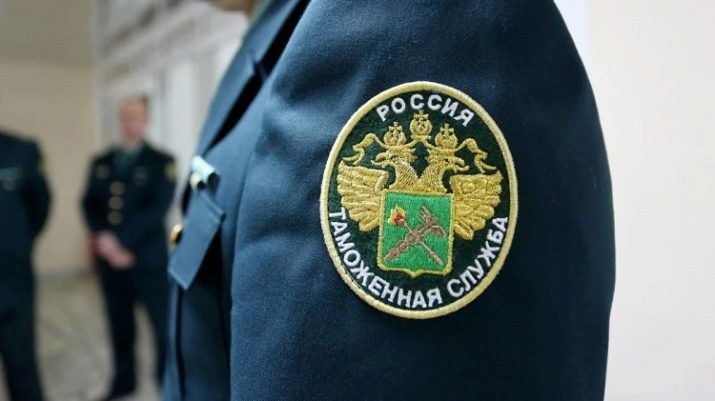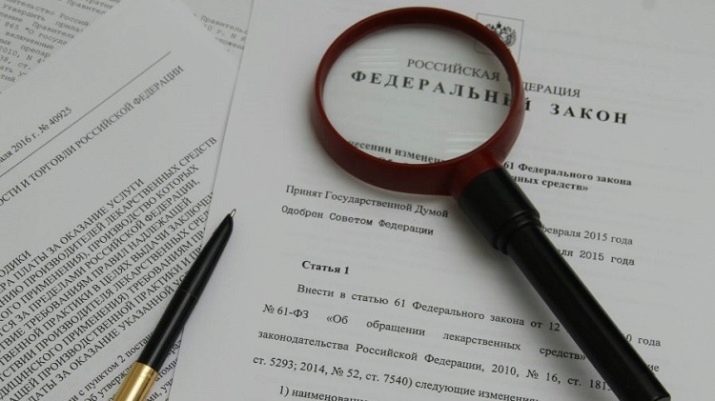Who is a civil servant and what does he do?

Those wishing to become civil servants must first figure out who is a civil servant in Russia, what is the list of professions of such workers at the present time. Then you need to clarify what they are obliged to do. And only then you should be interested in certification, salary and career expectations.
Who is that?
The very concept of "civil servant" in Russia, oddly enough for many, does not apply to everyone who works in government organizations. For example, various representatives of the armed forces and other power structures, diplomats and persons in elected positions, as well as their assistants, do not fall into this group in the narrow sense of the word. Also, representatives of the auxiliary and technical personnel of state institutions are not civil servants in the Russian Federation. It should be noted that in the list from the profile law, on the contrary, this category includes:
- military personnel;
- federal government officials;
- federal government civil servants;
- other civil service employees, the composition of which is determined in other laws;
- administrative personnel of specific regions.

There are only two classifying signs: the fulfillment of professional duties at the national or regional level and the receipt of cash payments for these duties from the all-Russian or regional treasury. Therefore, a police officer and a clerk at the MFC is considered a civil servant, and deputies and mayors are not included in this category.The difference from people performing even seemingly the same functions sometimes in the public or commercial sector is the presence of special powers, which are also enshrined in legislation. All of them solve their problems in the order necessary for the functioning of the entire state power.
The list of officials' professions is very long. It is given in thematic normative documents, primarily in the presidential decree. But in a simpler form, this list is as follows:
- the government of the country, governments and administrations of all regions of the country and large cities, their ministries and departments, local divisions and administrations;
- representatives of the prosecutor's office;
- law enforcement agencies;
- military establishment;
- the apparatus of the State Duma and the Federation Council;
- Administration of the President;
- representatives of the Ministry of Foreign Affairs in Russia and abroad;
- apparatus of courts of all levels;
- the office of the human rights ombudsman.

At the same time, they are guaranteed not to be included in this composition:
- municipal staff;
- employees of state-owned enterprises;
- judges;
- staff of budgetary institutions;
- doctors;
- teachers.
A civil servant always works under a contract. Employees of budgetary institutions work under labor contracts. Their status does not actually differ from the status of the personnel of commercial firms and hired individual entrepreneurs. The employees are assigned a salary in full accordance with the norms of a national or departmental nature. Public employees are paid a salary based on available funding and at the discretion of accountants and executives.
The high status of a civil servant is not available to those who:
- declared incompetent;
- has been tried and the conviction has not been removed or canceled;
- refused to sign a nondisclosure agreement if state secrets are needed to complete tasks;
- suffers from certain ailments;
- lost Russian citizenship or became the holder of dual citizenship;
- does not have the required skill level to perform basic duties.

Job types and responsibilities
The highest
This type of civilian civil servant is designated as "valid government advisors." They are further divided into 3 base ranks:
- 1 class coincides in status with a colonel general or a naval admiral;
- 2nd grade equal to lieutenant general or vice admiral;
- finally, Category 3 officially equated to a major general (or, in the naval sphere, to a rear admiral).
It is worth considering that in the prosecutor's office, the division by rank is not equated with military and naval service. It has its own gradation of official positions, which are equated to state advisers to the Ministry of Justice. Special titles are also introduced in:
- the police;
- customs service;
- general bodies of justice.

home
These are already just "state advisers", the addition of "valid" cannot be applied to them. In the same way, there are 3 ranks. They equate to:
- colonels and captains of the first ranks;
- lieutenant colonels and captains of the second ranks;
- majors and captains of the third rank.
Leading
Here the ranks of advisers are distinguished. Again there is a division into 3 key ranks. They are equated to:
- captains and lieutenant captains;
- senior lieutenants;
- lieutenants;
- lawyers of 1-3 categories (in the prosecutor's service).
Older
And again, the classification of categories has 3 links. The positions themselves at this level are called referents. Compliance provided:
- junior lieutenants;
- ensigns;
- senior warrant officers.

The youngest
The lowest federal and regional class ranks in the civil service are junior advisors. Secretaries are also included in this group. Similar military positions are chief petty officers on ships, petty officers and sergeants, corporals. The prosecutor's office does not provide for identical positions. The police have jobs of identical rank - from privates to senior sergeants, inclusive.
But this gradation is not enough to clearly describe what is included in the functions of civil servants, what they are obliged to do, and what they are prohibited from doing. An alternative and more convenient division is as follows:
- managers (including deputies);
- assistants (they are also advisers) - help managers;
- specialists - they solve certain problems at a professional level;
- providing specialists (work with information, documentation, financial and economic issues, without which the activities of government agencies are unrealizable).
Leaders and assistants belong to the highest, main, leading categories of service positions... Specialists may have the same ranks, including senior rank. As for the supporting specialists, they cannot be only managers and their deputies. Being in posts of another level is permissible for them.
The correspondence between the various civil, military, prosecutorial and police service levels was not introduced by chance - it allows you to easily move from one profile to another without an extremely complex status calculation, as well as to determine who is more important in a particular situation.

Service privileges are inconceivable without responsibilities - and this point cannot be bypassed when characterizing the activities of civil servants.... The necessary functions are fixed in the regulations of individual departments. They are described more clearly in personal contracts. The general service requirements are as follows:
- implementation of basic state laws (including when communicating with citizens and representatives of organizations);
- strict adherence to official regulations;
- execution of the order approved by the order of the department;
- maintaining and, if necessary, strengthening qualifications;
- preservation of all types of secrets provided for by law;
- avoidance of any defamation and dissemination of false information.
A separate block of responsibilities is associated with anti-corruption measures. Speech about:
- informing about oneself and family members, about other relatives, about income and disposable property;
- informing about the renunciation of citizenship or the emergence of dual citizenship;
- compliance with the anti-corruption procedures established by the regulations;
- notification of personal interest in a particular solution to a specific problem;
- reporting any attempts to bribe, pressure.

Rights
Civil service attracts many people precisely with the powers that are given to them. But they differ markedly depending on the substitution:
- proper administrative positions;
- police posts;
- military and naval ranks;
- certain positions in the prosecutor's office, customs and the Ministry of Justice.
Any such person, however, has the right to know the current regulations and other documents that determine his functions, tasks and requirements, important criteria of efficiency. You also have the right to get acquainted with the assessments of their activities by the management, controllers and other persons who are allowed by law to give feedback. This also includes the rights to familiarize yourself with a personal file, to add to this case your own explanations for various cases and events, and other materials. In a separate group, those powers are allocated that allow you to more efficiently and quickly perform professional duties. We are talking about:
- maintenance of technical and organizational conditions;
- requesting any information from management, other employees, individuals and organizations;
- submitting proposals for improving the work of a state body;
- gaining access to state secrets and other restricted data that are needed to complete the task.
The civil service presupposes a fairly wide range of social and private rights for everyone who deals with it.So, according to the law, contracts must prescribe the duration and conditions of rest, parameters of remuneration, additional incentive payments.

Officials have every right to participate in a trade union representing their interests, or refuse to participate in such an union. Coercion to participate in it, to withdraw from it or to vote at a trade union meeting in a certain way is not allowed. A civil servant has every right to defend his interests, prescribed by law.
It can do this:
- addressing the immediate superior;
- filing complaints with higher management;
- filing claims in court and objecting to them during the process;
- attracting public attention (but only without prejudice to the reputation of the service as a whole, its organization and its leaders in particular).
Inalienable protected rights are also health insurance and receiving a state pension at least in the same amount that is assigned to ordinary citizens in similar conditions.... Usually, however, various departments provide their employees with extended guarantees of both medical and pension nature.
Civil servants have the right to engage in other work on a reimbursable basis, except in cases where a conflict of interest is likely or it becomes impossible to perform basic duties. Employers - both the department and a third-party organization or individual entrepreneurs - must be notified of such a combination by notification on a special form.
Police officers, military personnel, representatives of the National Guard and some other structures cannot work part-time.

Primary requirements
The age limit for civil servants should be no more than 65 years... This requirement is enshrined in legislation and cannot be canceled at the departmental level. If you have the status of an assistant or adviser helping a particular person, the term of office is allowed to be extended by the decision of the immediate manager or the head of the organization (branch, department, department). This period may not exceed the time in office of the employee being assisted. For managers, it is allowed to extend the age of holding a position by the decision of their superiors or structures appointed to the post. But even such an extension is impossible for more than 70 years.
If, nevertheless, there is a need for a civil servant to further perform his function or other tasks in a government agency, he can be hired under a fixed-term employment contract for a position that is not related to the list of positions in the civil service. It is supposed to check the qualities and skills of employees when they first fill a position.... This check is carried out either upon presentation of documents, or through a probationary period, which can be longer or shorter, which is determined by the specific position and place of work.
Additionally, annual qualification exams are held to determine the professional suitability and level of motivation of the official.

When moving to a higher official position, an additional interview is required.... All other types of tests and inspections in the civilian sector are not permitted. But in the structures responsible for the security of the state, inspections will be much stricter. Usually, having a seniority and positive references from the previous place of work means that the candidate will be accepted after a short conversation. However, for candidates under the age of 22, a compulsory internship is provided, regardless of the level of education and other points.
A civil servant should know:
- the constitution of the country;
- federal laws;
- job schedule;
- service regulations;
- orders and instructions for the department;
- job description;
- document flow rules;
- their powers and responsibilities;
- other information that is necessary and desirable to do the job.

Education
The fact that civil servants are paid quite a lot motivates many to strive to become one. However, this is impossible without periodic attestations, the first of which is carried out already upon admission to the position. The purpose of certification is to verify compliance with the performed duties. The result is the preparation of a motivated review for a controlled period. Information about completed projects and solved tasks is added to this act.
By default, attestation passes Once every 36 months. Others are provided for by special orders. It can be organized if there is reason to believe that the competence of an employee of a government agency has been lost ahead of schedule, either during the transfer to a new level, or during the reorganization of the structure. In any certification, attention is paid to the level of training of the evaluated persons. Theoretically, you can get training in the specialization "state and municipal administration" at any university.
But the best prospects are open to graduates:
- Moscow State University;
- MGIMO;
- RANEPA;
- HSE;
- FSB academies;
- the financial university under the government;
- Plekhanov Russian University of Economics;
- DFU;
- UrFU;
- OmSU;
- Pacific State University;
- NCFU;
- TUSUR.
Senior officials are often legally trained. Quite a few of them also received education in:
- economic specialties;
- sociology;
- international relations;
- military profile;
- foreign languages.

The salary
Government salaries are stable. In addition, employees receive excellent pensions and large benefits in line with their duties. The average salary in government agencies is 60,000 rubles per month. In the central structures of ministries and departments, it exceeds 140,000 rubles. In the executive branch, the income reaches 130 thousand, in the courts and the prosecutor's office - 122 thousand, in other structures - 180 thousand.
At the regional level, the difference between the incomes of representatives of the executive power of federal and local status reaches more than 40%. It also concerns specific subjects of the federation and levels of government.
On average, in the regions, civil servants receive 55,700 rubles. At the municipal level - 45,500 rubles. Much depends on the specific position.
Career and prospects
The professional development of civil servants largely depends not only on them, but also on their direct management. Some have been in the same position for several years, while others are growing rapidly. It should be noted that the most “delicious” places are usually reserved for “their” people. The nature of the work in many cases is frankly bureaucratic. With a change in leadership, there is a great danger of losing the position, not pleasing the new boss.
You can increase your chances of success by:
- second higher education;
- learning foreign languages;
- the study of the features and nuances of a specific area (tax or financial, trade or construction, housing and communal or other areas of management);
- establishing contacts with management;
- broadening the general outlook;
- the ability to use general management theory and other disciplines in practice;
- successful solution of emerging problems in the shortest possible time and with minimal expenditure of labor and other resources.









